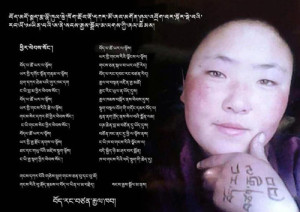RESPECTED THE DALAI LAMA SHOULD NOT GIVE UP DEMAND FOR INDEPENDENT TIBET
By N.S.Venkataraman
CHENNAI, March 21: In recent times, respected the Dalai Lama has repeatedly said that Tibetans are not seeking independence and they only want Tibet to stay with China with full autonomy for the Tibet region.
Certainly, this stand of the Dalai Lama has caused deep disappointment and frustration amongst a large section of Tibetans living all over the world as refugees or citizens in other countries. Their disappointment and anguish with the stand of the Dalai Lama are understandable, as it virtually means that the Tibetans concede the right of China to occupy and control Tibet as part of China. It also means accepting that the forced occupation of Tibet by China six decades back has logic and basis.
By taking this stand, the Dalai Lama virtually concedes that Tibet has no right or justification to exist as an independent country.
It is very difficult to comprehend how the Dalai Lama visualizes Tibet existing as an autonomous region in China.
The entire world knows that China today is under the control of an authoritarian government with the President who is a dictator for all practical purposes. Does the Dalai Lama really expect that China will allow Tibet to exist as an autonomous region with the respect that it deserves for its great tradition and culture?
It is now well known that China has systematically destroyed the spirit of Tibetans living in Tibet over the last six decades, brainwashed the youth in Tibet to make them believe that Tibet is only a province of China , replaced Tibetan language by Chinese as the language of the Tibet and has also appointed a figurehead as Panchen Lama ,who would abide by the dictates of China.
Recently, it is reported that the government of India has put some hurdles to Tibetans in India in the choice of location to conduct programmes to mark 60 years of the Dalai Lama’s stay in India and government of India is even reported to have asked the government functionaries to refrain from attending the programme, though the government of India sources has denied that such instructions have been given. Obviously, the government of India’s resolve and willingness to go to some extent to morally support the Tibetans’ right for independent Tibet has weakened, as the Dalai Lama himself has said that he would want Tibet to stay with China.
Obviously, the Dalai Lama appears to feel now that there is no hope of China giving up control over Tibet and therefore, he thinks that Tibetans should agree to stay with China in an honorable way, as the only option open to them.
In taking such stand, apart from giving sort of legitimacy to China’s unethical act of forcefully occupying Tibet, the Dalai Lama, whose words are listened to with great respect by all Tibetans and friends of Tibet all over the world, is diluting the resolve of the Tibetans to aspire for independent Tibet if not now at least in the future.
Certainly, the Dalai Lama, a great scholar that he is, should know that while the lifespan of human beings is limited, it is not so in the case of the countries. If the Dalai Lama and the Tibetans are not able to secure free Tibet in their lifetime, it need not mean that Tibet will not become independent at any time in future at all.
Even if the Dalai Lama thinks that he cannot see Tibet as a free country in his lifetime, he should not kill the prospects of Tibet becoming a free country in future. The Dalai Lama has great stature and his thoughts and words are very important and therefore, he should be extremely careful and foresighted in formulating his views on future of Tibet.
With all due respects to the Dalai Lama, I appeal to him to reconsider his stand that Tibet can stay with China.
He needs to revise his stand and proclaim that Tibet has all the justification to remain as an independent country and this should be the goal of Tibetans now and in future.
S. Venkataraman is a trustee with the “Nandini Voice for the Deprived,” a not-for-profit organization that aims to highlight the problems of downtrodden and deprived people and supports their cause. To promote probity and ethical values in private and public life and to deliberate on socio-economic issues in a dispassionate and objective manner.




